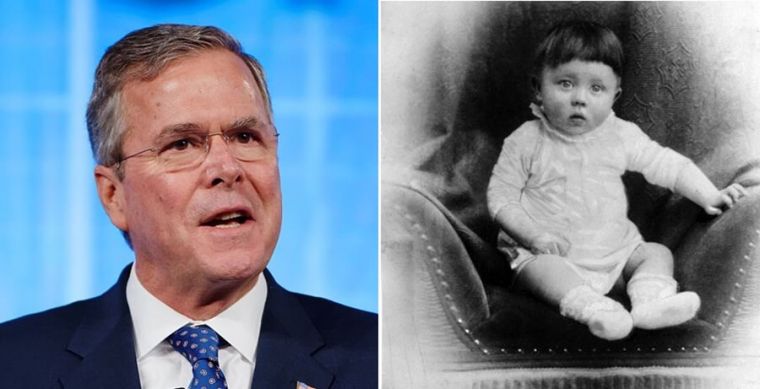If time travel were real, Jeb Bush wouldn't hesitate to kill Adolf Hitler on his birthday 126 years ago to stop World War II

The concept of time travel is not real, but if it were, Republican presidential hopeful Jeb Bush would not hesitate to go back in time to Braunau am Inn in Austria on April 20, 1889 and kill Germany's most terrifying historical figure —Adolf Hitler — in the place and on the day of his birth.
Just last month, the New York Times asked its readers to contemplate on a question that has inspired many works of literature and ethical debates: "If you could travel back and time and kill Hitler when he was a baby, presumably stopping the events that led to World War II as far as we know, would you do it?"
When the Huffington Post asked Bush the very same thing, the presidential aspirant answered, "Hell yeah, I would! You gotta step up, man."
He then made a reference to a popular 80s movie "Back to the Future," which starred Michael J. Fox and Christopher Lloyd. If the movie taught its viewers anything, then it's the fact that messing with events of the past can lead to very serious consequences. "It could have a dangerous effect on everything else, but I'd do it — I mean, Hitler," he said with a shrug.
Throughout his lifetime, Hitler and the rest of his followers in the Nazi regime became responsible for the genocide of at least 5.5 million Jews as well as millions of other "socially undesirable" victims, which they deemed as Untermenschen, or "sub-humans."
Not only that. Hitler and his Nazi followers were also responsible for the deaths of 19.3 million civilians and prisoners of wars. Around 29 million soldiers and civilians also lost their lives because of military action in the European theatre of World War II.
Because of the overwhelming number of casualties during the Second World War, it has been considered as the deadliest conflict in human history.











